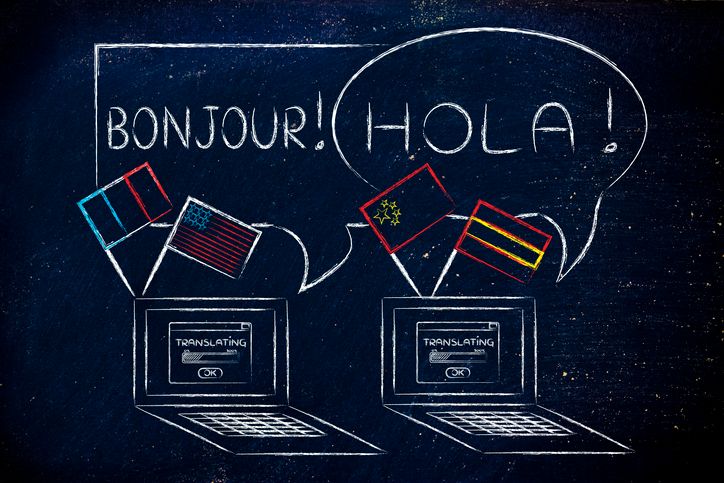As your business expands into new territories, with new languages, the question of translation will arise.
As English speakers traveling the globe, we often get lazy and pick up a phrase or two of a foreign language before we visit a country and then rely on the fact that English is the global language, and we can get by on it.
But translating your website, the digital shop front of your brand, is a different story.
So the answer to the question, “does my website need to be translated?” is “absolutely.”
But translation actually isn’t enough. Your website needs to be localized.
At LinguaLinx, we help our customers translate their websites all the time, and we’re sympathetic to the fact that localizing a website can seem like a daunting prospect.
That’s why you don’t need a translator, but a Language Services Provider (LSP), who has the whole process down to an art form and the contacts to create web content in almost every language from Spanish to Cantonese.
Why Localize Your Website Content?
Translation is taking one set of text in language A and converting it into language B.
Localization is getting under the skin of the culture you’re targeting and really understanding who they are, how they live, what the cultural norms are, and how to make your product or service totally appeal to them.
If you’re going to buy a race car, it’s not enough to just buy a race car. If Formula 1 cars are the fastest in the world, would you just assume that’s the best car to buy? What if you’re racing off-road through the jungles of Peru or the Sahara Desert? Or if you are on a track, what if it has so many tight turns and short straights that your Formula 1 car never gets out of second gear?
When you localize, you’re showing that you totally understand your target market and all of the nuances of the local language.
Show People You Respect Their Language and Culture
By localizing, you’re showing that you respect the culture of the people you want to be your customers. You’ve taken the time to learn their way of life because that’s important to you, and you care about them.
Statista reports there are 258 million native Portuguese speakers in the world. But if you’re heading into Brazil, it’s not enough to have your website in Portuguese, it needs to be in Brazilian Portuguese.
And maybe your target market is in a certain region of Brazil, so you should consider localizing your site into one of the four regional dialects of Portuguese in the South American country.
Website Translation Is More Than Just Text
When you localize, you consider the bigger picture. Sure you’re going to get the text translated correctly, but is there slang that works in one area of China and not a thousand miles away in another?
We know the story of a Canadian man who arrived at an office in Manchester, England, for his first day of work in the UK. The receptionist asked him if he wanted a brew. The Canadian looked at his watch and thought that 8:30 in the morning was a strange time to start drinking beer. Brew is casual for beer in Canada. Of course, in England, a brew is a cup of tea.
And don’t forget imagery. If you’re heading into an Arabic market, are all the people in your photography dressed appropriately?
If you’re running a holiday or dating brand, and you’re moving into the lucrative Dubai market, does your website contain images of people holding hands and kissing on the beach? This is considered inappropriate and offensive in the United Arab Emirates (UAE) and many other Arabic countries, which can get your website shut down by local authorities.
The UAE needs particular attention to detail because it's comprised of 15 Emirates (territories under the jurisdiction of an Emir) and their laws regarding clothing, affection, and alcohol use can vary from one to another.
Stay Legal, Stay Online
To have a retail brand today without an online e-commerce offering is like trying to catch fish with no bait. In some areas of the world, having your website in the correct language is a legal requirement.
The fashion retailer Anthropologie discovered this only too well when the Government of Quebec shut Anthropologie's website down because it wasn't in French.
So, while their competitors continued to obey The French Language Charter, and continued to profit from online sales, Anthropologie customers had to get in their cars and drive to their brick-and-mortar shop in downtown Montreal.
How’s that for a good customer experience?
Don't Alienate 3/4 of Your New Customer Base
A study conducted by CSA Research found that 76% of people prefer purchasing products with information in their own language, and 40% of people will never buy from websites in other languages.
So should you translate - sorry, localize - your website? Absolutely.
And if you don’t do it, your competition probably will.
Get a Quote for Your Website Localization Project
As you can tell, there are a lot of factors to consider when choosing the best language service provider to help localize your website.
If you’re thinking of localizing your website, we’d love to sit down and talk with you about it.
Consultations are free and there’s no obligation.
With LinguaLinx, you won't ever have to worry about your message getting lost as it’s translated into multiple languages across your website. You know you're in good hands with our ISO 17100 and ISO 9001 compliance, twenty years of professional translation experience, and the organizations whose trust we've earned.







